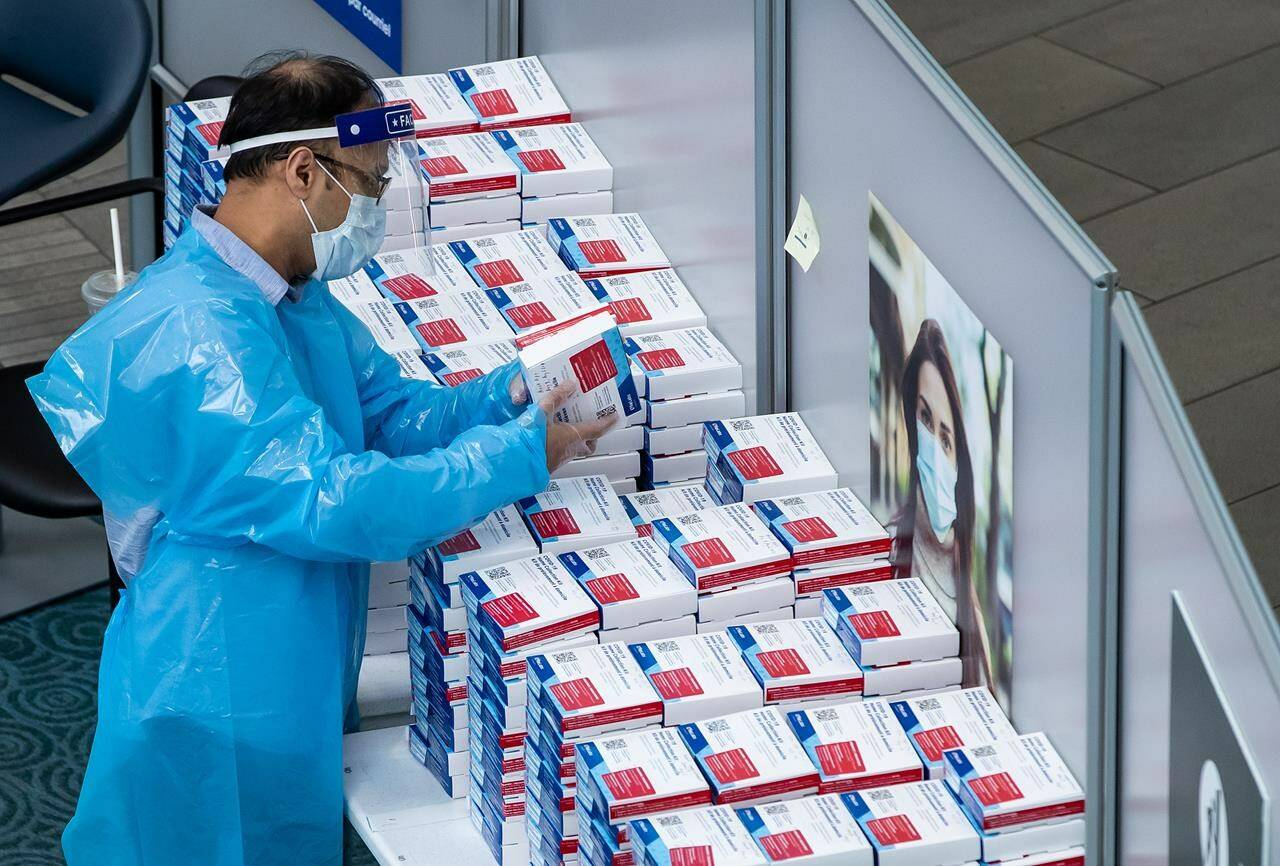The federal government says that as of Nov. 30, fully vaccinated Canadians and permanent residents who are visiting the United States for less than 72 hours won’t need a costly molecular test for COVID-19 in order to return home.
The Public Health Agency of Canada also says that by the end of the month, travellers who received the Sinopharm, Sinovac and Covaxin vaccines will be considered fully vaccinated for travel purposes.
Critics in both countries have been complaining for weeks about the need for what’s known as a PCR test, which can run between $150-$300 per swab, saying it’s a major deterrent to the resumption of cross-border travel.
Travellers who are out of the country for more than 72 hours, however, will still be required to present a negative molecular test at the border on their way home.
“We can’t let our guard down,” Health Minister Jean-Yves Duclos told a news conference Friday as he unveiled the new rules. “Every one of us must work hard to protect the gains we have made.”
New York congressman Rep. Brian Higgins wants the test scrapped entirely for vaccinated travellers, but officials say Canada is taking a more responsible, gradual approach to easing its travel restrictions.
The agency also says that as of Jan. 15, it is closing certain loopholes in the vaccination requirement for travellers, including for international students, athletes, work permit holders and essential service providers, including truck drivers.
The Canadian Chamber of Commerce promptly panned the decision to leave the PCR test requirement in place for longer-term trips, calling it a “one-way door on the border.”
“Just as the holiday shopping season — the most important period for the retail sector — begins, Ottawa is making it easier for Canadians to cross-border shop while maintaining punitive restrictions that discourage fully vaccinated Americans from vacationing or shopping in Canada,” chamber president and CEO Perrin Beatty said in a statement.
“The 72-hour cutoff is also arbitrary. It is hard to understand how travellers are low-risk for 72 hours, but become a danger at hour 73.”
Duclos said the requirements for U.S. visitors to Canada are under review, with a decision to be announced “at a later date.”
Dr. Theresa Tam, Canada’s chief public health officer, said the discrepancy between Canadian and U.S. travellers is more a reflection of “operational considerations” than anything else.
Public health authorities can more easily keep track of and keep in touch with Canadian citizens and permanent residents upon their return to Canada than they can U.S. visitors, who are entitled to remain in the country for up to six months, Tam said.
Deputy chief public health officer Dr. Howard Njoo made the point that the epidemiological situation near the Canada-U.S. border is more likely to be similar on either side, which makes it easier to allow those crossing briefly to do some shopping or buy a tank of gas to re-enter Canada without a test.
Longer-term visits, however, mean travellers are more likely to be moving further afield in the U.S., where there are still numerous COVID-19 “hot spots” and Canadian public health authorities “have no idea what they’ve been doing,” Njoo said.
—James McCarten, The Canadian Press
RELATED: Canada’s top doctor says COVID test border requirements should be re-examined

